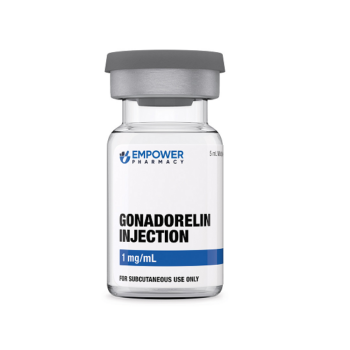Article Summary
The article provides a comprehensive overview of rapamycin, discussing its uses, benefits, and considerations. It explores rapamycin's potential applications in promoting health and wellness, including its effects on aging and immune function. Empower Pharmacy's guide offers valuable insights for individuals considering rapamycin supplementation, emphasizing informed decision-making and understanding of its mechanisms.The Function & Uses of Rapamycin
Rapamycin is a potent immunosuppressant drug. Derived from a bacterium, rapamycin has emerged as a key player in the field of medicine. Its unique properties have led to a wide array of applications across various disciplines, including organ transplantation, cancer treatment, and aging research.[1][2]
Rapamycin was discovered in 1972 on Easter Island (also known as Rapa Nui), hence its name. The drug’s mechanism of action involves binding to the protein FK-binding protein 12 (FKBP12) and forming a complex that inhibits a serine/threonine kinase called mTOR (mechanistic target of rapamycin). mTOR plays a vital role in cell growth and proliferation. By inhibiting mTOR, rapamycin suppresses various immune responses, including T-cell proliferation, thus making it an effective immunosuppressant.[3]
Organ Transplantation & Cancer Treatment
Rapamycin has been extensively used to assist with organ rejection following transplantation. Due to its potent anti-proliferative properties, rapamycin has gained significant attention as a potential cancer treatment. Research has demonstrated that mTOR signaling plays a crucial role in tumor growth, making it a target for therapeutic intervention. Rapamycin and its derivatives, collectively known as mTOR inhibitors, have been studied extensively in various cancer types, including breast, prostate, and renal cell carcinoma. Clinical trials have shown promising results, leading to the approval of rapamycin derivatives for certain cancer treatments.[4]
A New Age
In recent years, rapamycin has made waves within the field of aging research. Studies have shown that mTOR activity plays a significant role in the aging process and age-related diseases. By inhibiting mTOR, rapamycin has been shown to extend the lifespan of various organisms, including yeast, worms, flies, and mice.[5] These findings have sparked interest in utilizing rapamycin as a longevity option for humans. Ongoing research is focused on determining the optimal dosage and duration of treatment to minimize potential side effects. One particular study is one of the first to evaluate a large human population (more than 300 people) and may be of interest to providers who practice in this emerging space.[6]
Rapamycin, with its potent immunosuppressive and anti-proliferative properties, has revolutionized various areas of medicine. Whether it’s preventing organ rejection, fighting cancer, or exploring the mysteries of aging, rapamycin has proven itself to be a powerful drug with broad applications.
- Kim, Y. H., Park, B. S., Bhatia, S. K., Seo, H., Jeon, J., Kim, H., Yi, D., Lee, J. H., Choi, K., Park, H., Kim, Y., & Yang, Y. (2014). Production of Rapamycin in Streptomyces hygroscopicus from Glycerol-Based Media Optimized by Systemic Methodology. Journal of Microbiology and Biotechnology, 24(10), 1319–1326. https://doi.org/10.4014/jmb.1403.03024
- Blagosklonny, M. V. (2019b). Rapamycin for longevity: opinion article. Aging, 11(19), 8048–8067. https://doi.org/10.18632/aging.102355
- Kim, Y. H., Park, B. S., Bhatia, S. K., Seo, H., Jeon, J., Kim, H., Yi, D., Lee, J. H., Choi, K., Park, H., Kim, Y., & Yang, Y. (2014b). Production of Rapamycin in Streptomyces hygroscopicus from Glycerol-Based Media Optimized by Systemic Methodology. Journal of Microbiology and Biotechnology, 24(10), 1319–1326. https://doi.org/10.4014/jmb.1403.03024
- Law, B. K. (2005). Rapamycin: An anti-cancer immunosuppressant? Critical Reviews in Oncology Hematology, 56(1), 47–60. https://doi.org/10.1016/j.critrevonc.2004.09.009
- Blagosklonny, M. V. (2013). Rapamycin extends life- and health span because it slows aging. Aging, 5(8), 592–598. https://doi.org/10.18632/aging.100591
- Kaeberlein, T. L., Green, A. S., Haddad, G., Hudson, J., Isman, A., Nyquist, A., Rosen, B., Suh, Y., Zalzala, S., Zhang, X., Blagosklonny, M. V., An, J. Y., & Kaeberlein, M. (2023). Evaluation of off-label rapamycin use to promote healthspan in 333 adults. GeroScience. https://doi.org/10.1007/s11357-023-00818-1




